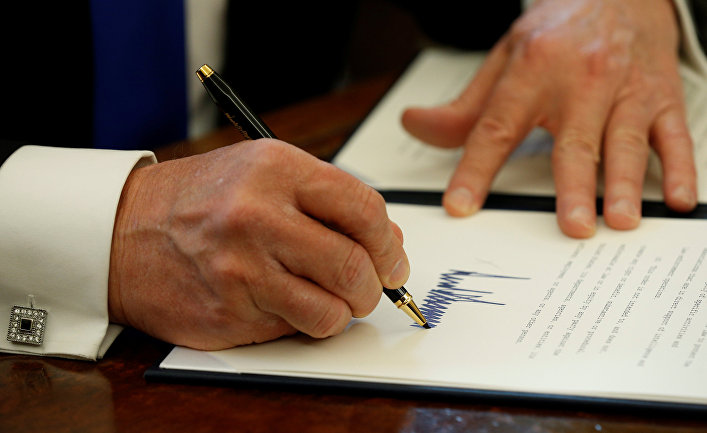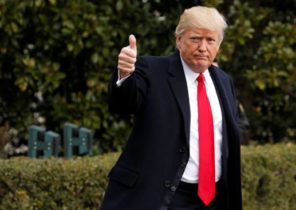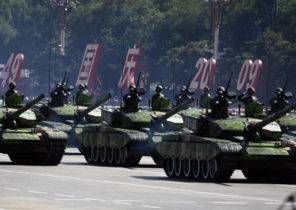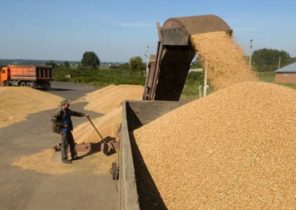
Brazil, most likely, will not be included in the number of countries which are protectionist policy of the new head of the White house Donald trump will inflict serious damage. However, a Brazilian investment projects in infrastructure may not take place due to similar plans, which, as suggested, the new occupant of the White house is preparing to stimulate employment and business in the United States.
In the short term, these plans aimed at the recovery of the us economy, may even be favorable to Brazilian exporters of mineral raw materials, e.g. iron ore.
However, in the case that “trumpalaike” in the field of infrastructure projects will start to pull on too much of the attention and resources of the capital, which Brazil hopes to obtain from foreign investors to move their own infrastructure may be under threat. The new terms may also adversely affect the speed and volume of concessionary agreements for the construction of roads, Railways, ports and airports, which the Brazilian government has planned for 2017 and 2018.
The economic situation in Brazil, despite the generally positive dynamics, is unstable. The investment capacity of the public sector is still quite low. We are not able to modernize the infrastructure, relying solely on domestic capital. If the United States really will be accepted for a massive upgrade of its infrastructure, the capital, is dedicated to this activity, naturally will flock primarily in the U.S., and therefore are less likely to migrate to countries such as Brazil.
In regard to international trade, “heavy guns” of the White house today is directed mainly against the Mexico and China — both countries have impressive trade balance with the United States. In this context, leaves little room for any more “candidates in the victim” trump.
Not to say that Brazil is a positive signal. The reason the country avoided the isolationist policy of the United States, is that the share of foreign trade in the Brazilian GDP is quite low historically, it is only about 20% of the Brazilian product. In addition, Brazil is one of the few countries that consistently accumulated trade deficit with the Americans.
Washington’s refusal to participate in the TPP (TRANS-Pacific partnership) can even lead to the fact that Brazil will win for themselves some share of the market (or will cease to lose), because for countries that were parties to the Treaty, the United States will not be products of the agroindustrial complex with tariff advantages. There are a number of branches of agriculture, including world production of protein, in which the United States and Brazil are competitors, and lower the attractiveness of us goods potentially beneficial Brazil.
However, all this will depend on the results that the administration of the tramp comes, following the strategy of the replacement of multilateralism with bilateral agreements with the markets of the Asia-Pacific region. Brazil will also need to make efforts to facilitate trade, including with Asian countries, which was not originally included in the CCI, as in the case of India and Indonesia.
If, on the one hand, Brazil due to the reduction in the export profile of the United States may gain some advantage in trade in raw materials, the same cannot be said about industrial goods. What is important is not so much a decline of American exports as the way Brazil will be able to build a strategy on three fronts: monetary, fiscal and negotiation.
The country needs to maintain a competitive cash rate to increase the volume of exported manufactured goods. Brazil also should be simplified and, where possible, to mitigate the tax burden imposed on the exporter. And, of course, Brazil should not be misled about the length of this phase of “de-globalization”. It is crucial to insist on the negotiation of trade agreements — something that Brazil in the last 13 years did not dare to do.
Moreover, even with the revision or the collapse of NAFTA, Mexican products will continue to represent for Brazil, the element of competition on the markets of third countries. There is a wide range of industrial goods with a comparative advantage of the Mexican producers is higher than that of the Brazilian.
It’s certainly linked with access to markets and dozens of preferential agreements that Mexico has concluded after the NAFTA talks. However, a strong argument in favor of Mexico are the other factors: lower taxes, reduced restrictions in labour legislation, in General, more favorable business environment.
Ultimately, even if “trumpalaike” will have on Brazil one or the other positive side effect in the medium term, with trading scenarios, watered-down protectionism, the world as a whole will lose out.







